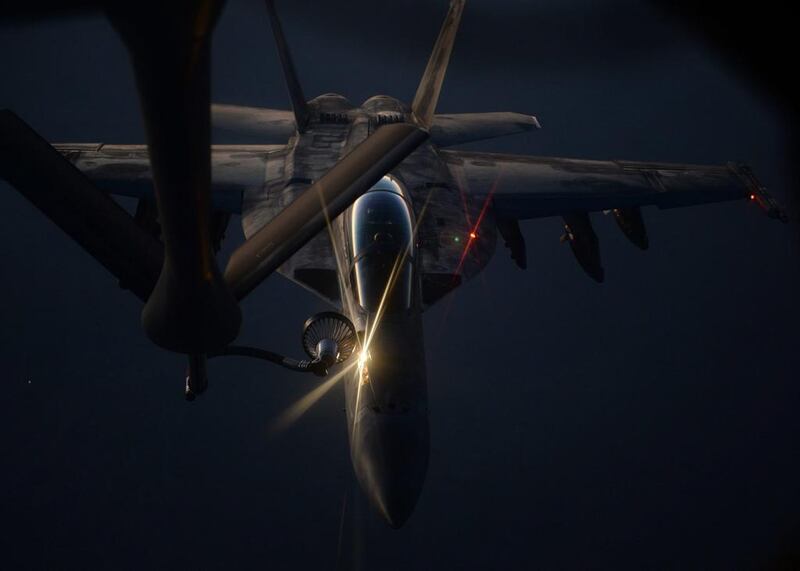Huddled in the presidential palace on Qassioun mountain, Bashar Al Assad appears to think he has found a way out. Ever since he began to brutally put down the initially peaceful uprising against his rule, Syria has become a pariah state, opposed by regional countries like Turkey and western countries such as the US and the UK.
Now, Mr Al Assad appears to think he could be let off the hook if he helps the West tackle ISIL. Speaking earlier this week, Syria’s foreign minister Walid Muallem said his country – or at least the part of it the regime still controls – would be willing to work with the US and the UK to tackle the threat. But, he warned, any attack on ISIL on Syrian territory without Damascus’ permission would be considered an act of aggression.
Let us start with what is an act of aggression. An act of aggression is using chemical weapons against civilians, as the Syrian regime did last year in Ghouta. It is dropping barrel bombs and launching mortar attacks on cities; it is bombing people while they queue for bread; it is using the shabiha to rape and murder and create fear.
Friends of Syrians in the Gulf have not forgotten that the Assad regime did all that. Nor has the crippling siege of Homs been forgotten, or the siege of Aleppo that still runs.
We have not forgotten that it was the Assad regime which starved its own people to stop them asking for their legitimate rights. Millions of Syrians have fled their homes within Syria and without, causing enormous pressure on Jordan, Lebanon and Turkey.
Nor have we forgotten that it was the Assad regime that allowed ISIL to thrive, noticeably refusing to bomb their headquarters in Raqqa even while their flag clearly marked it – and all the while pouring bullets and ordnance on moderate opposition groups.
That has not been forgotten not simply because of our belief that Bashar Al Assad should leave power, but because by his actions he has made the Gulf and its allies less safe. The wave of refugees from Syria threatens Jordan. The civil war in Syria threatened Iraq and allowed ISIL to breed. For the sake of political expediency, it would be easy to work with the Assad regime to combat the threat of ISIL. But both, in truth, are threats to the Gulf. The Middle East needs to be rid of both.





